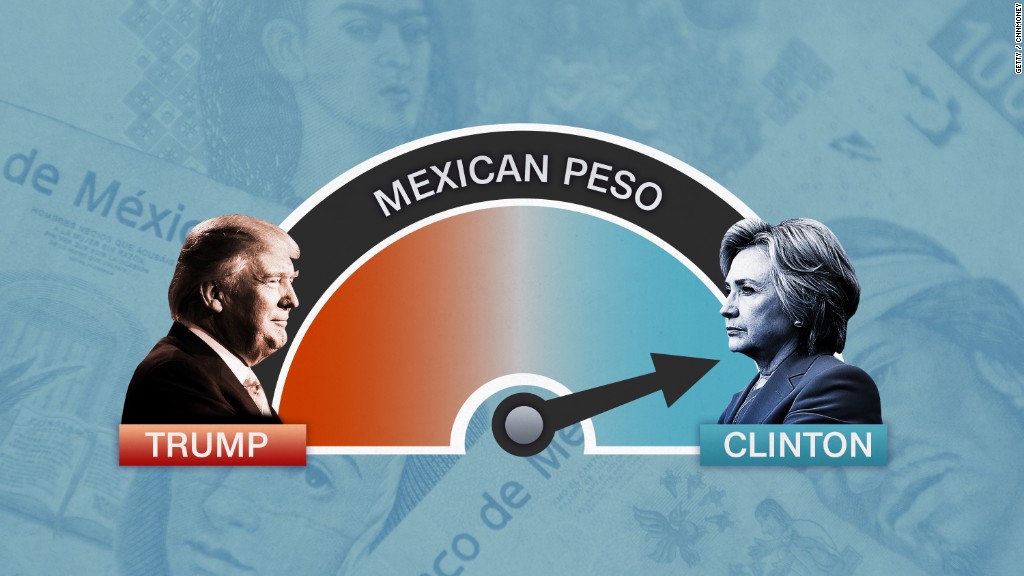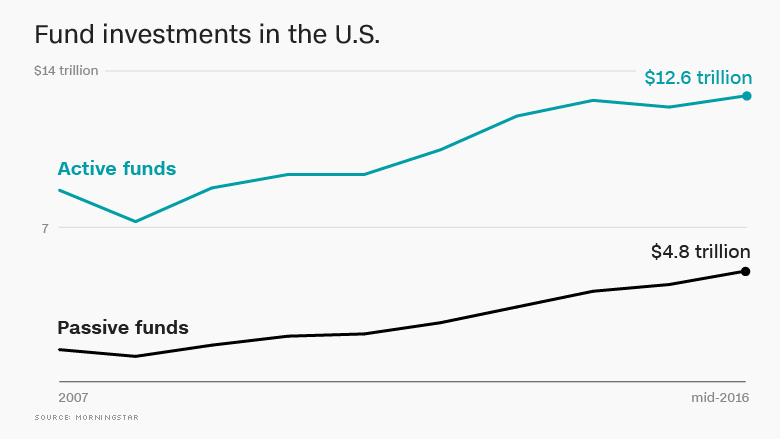
The volatile 2016 presidential election may be spooking mom-and-pop investors.
An estimated $17 billion was yanked from stock market mutual funds during the week that ended October 19, according to the Investment Company Institute. Nearly the entire exodus was from U.S. mutual funds, not global ones.
It's the most investors have pulled from these retail-focused funds since August 2011, a period which was marked by global market turmoil after the U.S. credit rating was downgraded for the first time ever.
The mutual fund outflows are the latest evidence of investors ditching expensive "active" funds run by stock pickers. Many are turning instead to "passive" funds that blindly track indexes.
Michael Block, chief strategist at Rhino Trading Partners, said it's also likely a sign of nervousness ahead of Election Day on November 8.
"There's enough apprehension to keep buyers at bay," Block said.
Investors -- and voters -- have had months to gauge the impact of either a President Clinton or a President Trump, but questions remain over how either would actually govern.
"There's a high probability of Clinton winning, but we have to ask ourselves if that's good or bad," Block said. "Trump remains a wild card. He's allegedly pro-business, but no one really knows for sure."
Related: A Trump win would sink stocks. What about Clinton?
Forecasting firm Macroeconomic Advisors predicts an 8% fall in U.S. stocks if Trump wins. Even though many believe investors want Clinton to win because she's a known quantity, stocks could come under pressure in the unlikely event that Democrats win back the U.S. House of Representatives because it would create policy uncertainty.
For now, the U.S. stock market isn't exactly freaking out over the presidential election. The S&P 500 is down just 1.5% in October and the Dow is basically unchanged. For the year, both major benchmarks are enjoying healthy gains of nearly 5%.
Still, Jeff Carbone, managing partner of Cornerstone Financial Partners, thinks the "uncertainty of the election" is a "key reason" behind the recent mutual fund outflows.
Carbone said retail investors -- and the markets more broadly -- could react dramatically if Trump pulls off an upset.
The day after the election has been notoriously weak for stocks. The average post-election selloff since 1984 has been 1% for the S&P 500, according to Bespoke Investment Group.
Stephen Wood, chief market strategist at Russell Investments, said "political headlines can generate short-term volatility."
However, Wood expects "fundamental reasons" like the earnings cycle, economic growth and the latest moves from the Federal Reserve will "carry investor logic over the medium and longer term."
Related: Is this the end of investing as we know it?
In any case, it's clear investors continue to shift away from active funds, which despite being more expensive have long played a dominant role in money management.
Active funds have suffered $257 billion of outflows since the start of 2015, according to Morningstar. Meanwhile, passive funds now make up 28% of the U.S. investing community's assets, up from 13% in 2008, Morningstar numbers show.
"People are not seeing a lot of value in active management. The big move to passive continues," Block said.

--CNNMoney's Alanna Petroff and Heather Long contributed to this report.


